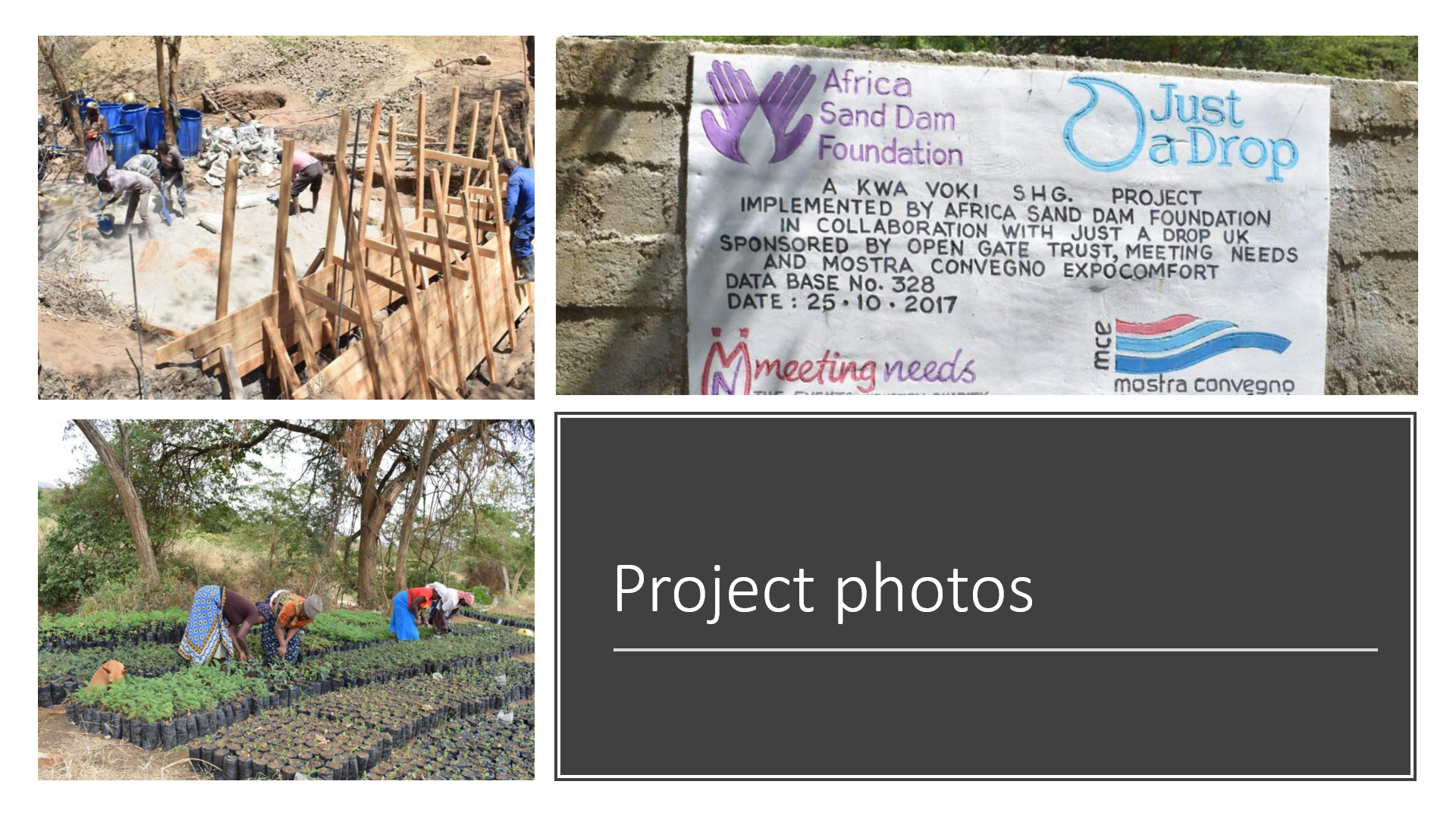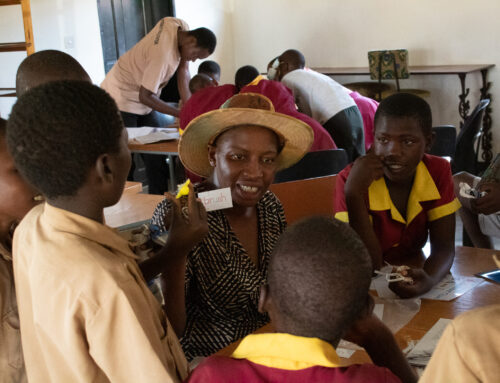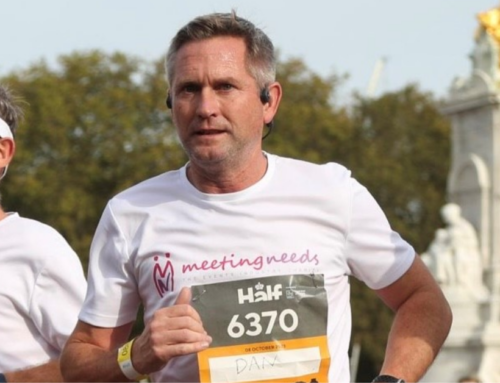The building of a dam in an impoverished region of Kenya has delivered clean water and the planting of drought resistant crops to benefit more than 5,000 people, thanks to funding from event industry charity Meeting Needs.
The Kwa Voki Sand Dam project was delivered by UK charity Just a Drop and co-funded by Meeting Needs. The Kwa Voki Sand Dam project in Kenya brought safe water to 5,497 people, as well as conducting drinking water, sanitation and hygiene training and a food security programme. Meeting Needs provided £5,700 of the total £19,000 cost of the project. A concrete sand dam was constructed, a shallow well was installed to make collecting water from the sand dam easier for the community and a food security training programme was undertaken, which included how to grow drought resistant crops, using crops sustainably and maintaining a seed bank, tree planting and governance training when selling excess crops and terracing.
The project improved access to safe water for Kilanga Village and the wider Mumbuni community. Previously during dry periods, women and children, who usually collect the water, were walking between 6 to 12 hours a day, leading to less time spend on income generating activities and children missing out on their education. Farmers lacked infrastructure to store the vital rainfall when it comes, contributing to poor water access. In addition, a changing climate has resulted in rains becoming less frequent and harder to predict, reducing the availability of water for drinking, household needs and farming.
The average distance for the majority of the community to collect water is now less than one kilometre, spending less than 30 minutes to collect water. The local self-help group) collected all the materials required for the projects and volunteered their labour during the construction phase. They spent time planning and managing the successful execution of the project and attended the training in food security, to help them better manage the project after completion, and in hygiene and sanitation, to improve living conditions, health and quality of life overall. The health of the community was previously suffering from water-related illnesses due to dirty water. The community was trained in how to grow drought resistant crops and provided with saplings and seeds. It is expected that excess crops will be sold, bringing much needed income into the community. Education and training is crucially important for increasing the impact of this project. Just gaining access to safe water does not provide the community with the full health benefits possible, handling and storing water safely is vital as well. They received training and are now expected to adopt latrines in their homes and other hygiene and sanitation practices including clothes lines, water treatment and dish racks. Soap making was included in this training with the objective to enhance sanitation and hygiene at the household level by enabling access to soap at an affordable cost and at the same time enabling an income generating opportunity.
Overall benefits included:
•An improvement in health across the community, as the instance of water-related illnesses will decrease
•Improved hygiene and sanitation will improve living conditions, health and quality of life overall
•Children will be able to attend school more regularly as they will be less ill
•Women in particular will benefit as they no longer have to spend so long carrying heavy water, enabling them to pursue more beneficial activities
•Better health and nutrition through the emphasis on improving food production and stimulating the rise out of poverty.
Meeting Needs executive committee member Lene Corgan said: “The sustainable aspect of this project is particularly pleasing
You can read their Christmas Newsletter here…..






